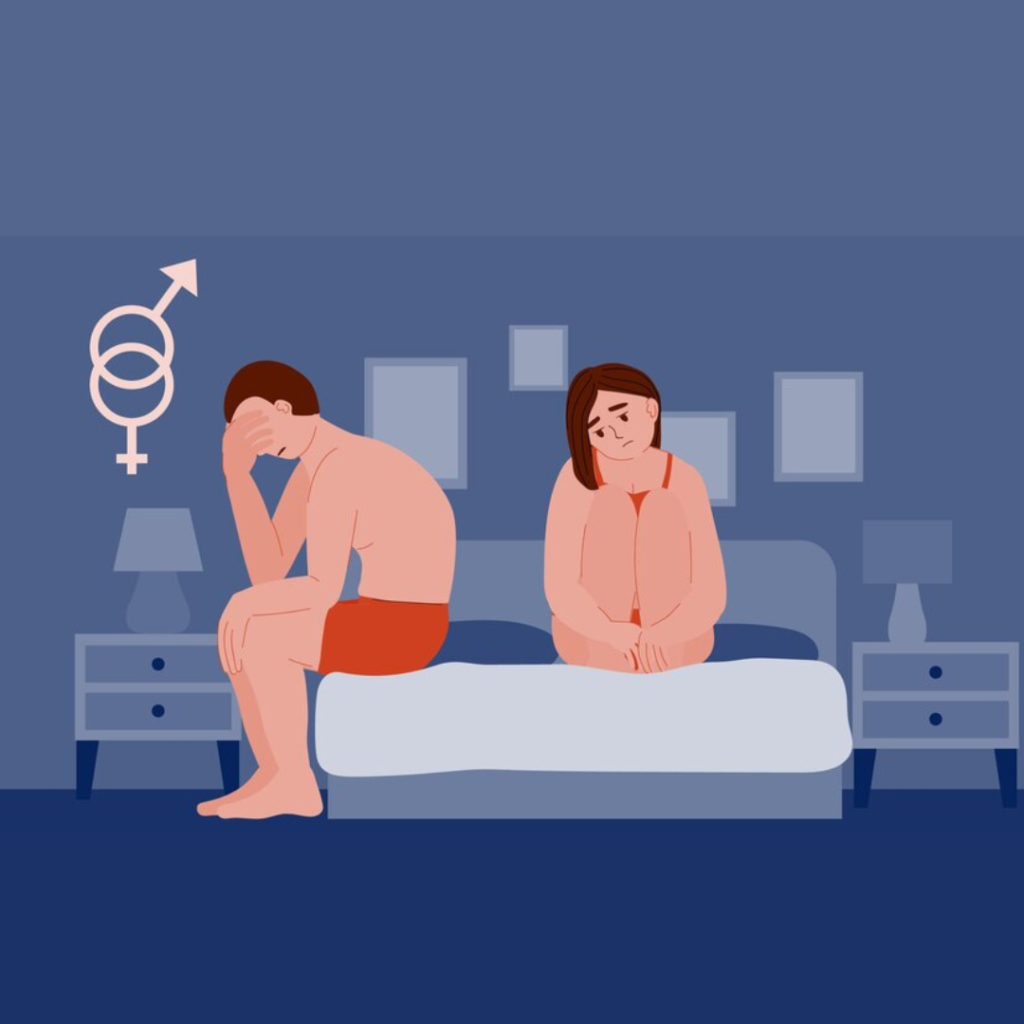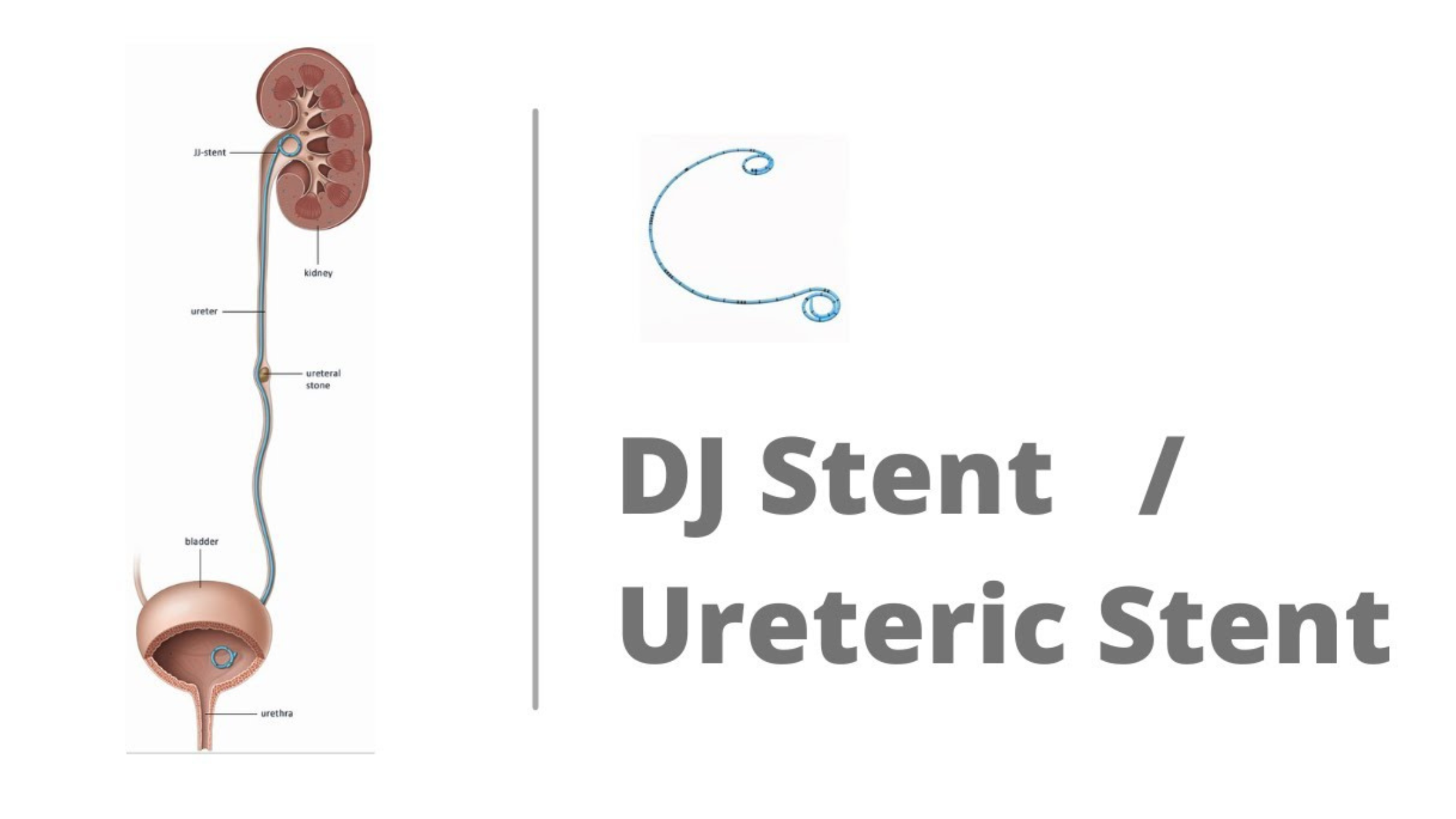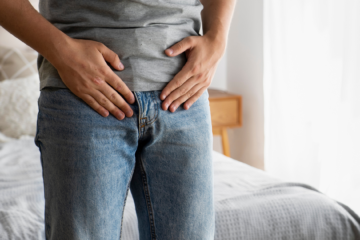
Premature ejaculation is a widespread sexual concern that affects countless men worldwide, irrespective of age or background. It’s a condition that can cast a shadow over intimate moments, leading to frustration, anxiety, and diminished sexual satisfaction for both partners. But the good news is that there are effective treatments and solutions available to help delay ejaculation, restore confidence, and rekindle the flame of satisfying intimacy. In this comprehensive blog, we will explore the various facets of premature ejaculation medication, offering insights into treatments, solutions, and the path to lasting pleasure and sexual fulfilment. Whether you’re personally grappling with premature ejaculation or seeking knowledge to support a loved one, this guide is designed to shed light on this common issue and provide valuable information on how to address it effectively.
Understanding Premature Ejaculation
Premature ejaculation (PE) is a prevalent sexual dysfunction that can significantly impact a man’s sexual experience and overall well-being. It is defined as the persistent and recurrent ejaculation that occurs with minimal sexual stimulation and before the individual desires it, often leading to distress or frustration. To gain a comprehensive understanding of premature ejaculation, it’s essential to explore its causes, symptoms, and the impact it can have on individuals and their relationships.
Symptoms of Premature Ejaculation
The primary symptom of premature ejaculation is the inability to delay ejaculation, leading to ejaculation occurring earlier than desired. Specific characteristics of PE may include:
- Ejaculation occurs within one minute of penetration or even before penetration.
- Inability to control or delay ejaculation during sexual intercourse.
- Frustration, distress, or anxiety related to the premature ejaculation episodes.
- Avoidance of sexual activity due to fear of underperforming.
- Decreased sexual satisfaction for both the individual and their partner.
It’s important to note that occasional episodes of premature ejaculation are normal and not necessarily indicative of a chronic problem. PE is typically diagnosed when these symptoms become persistent and distressing.
Causes of Premature Ejaculation: Understanding the Factors Behind PE
Premature ejaculation (PE) can have various causes, which can be broadly categorized into psychological, physical, and other contributing factors. Let’s explore these causes in detail:
1. Psychological Factors
- Anxiety and Stress: High levels of anxiety and stress can disrupt the normal sexual response, making it challenging to maintain control over ejaculation. Performance anxiety, in particular, is a common psychological factor contributing to PE. Fear of underperforming or concerns about satisfying one’s partner can lead to heightened anxiety during sexual activity.
- Depression: Mood disorders, such as depression, can affect sexual performance. Depressed individuals may experience changes in libido, arousal, and overall sexual satisfaction, which can contribute to early ejaculation.
- Relationship Issues: Problems within a relationship, such as communication issues, unresolved conflicts, or emotional distance, can create emotional stress. This stress can spill over into the bedroom, leading to PE.
- Sexual Inexperience: In some cases, lack of sexual experience or infrequent sexual activity can contribute to premature ejaculation. As individuals become more comfortable and experienced with their partners, PE may improve over time.
- Negative Sexual Conditioning: Previous negative sexual experiences or conditioning, such as rushing through sexual encounters due to fear of being caught, can contribute to a pattern of premature ejaculation.
2. Physical Factors:
- Hypersensitivity: Some men have a naturally more sensitive penis. This hypersensitivity can make them more prone to quick ejaculation. Learning to manage and reduce penile sensitivity can be a helpful strategy in such cases.
- Prostate Issues: Conditions like prostatitis (inflammation of the prostate gland) may affect ejaculation control. Prostate-related issues can lead to discomfort and increased sensitivity, potentially contributing to PE.
- Hormonal Imbalances: Hormones play a crucial role in sexual function. An imbalance in hormones, particularly low levels of serotonin (a neurotransmitter), can affect the ejaculatory process. Serotonin is involved in regulating the timing of ejaculation, and lower levels may lead to premature ejaculation.
- Neurological Issues: Certain neurological conditions, such as multiple sclerosis (MS), can interfere with the nerve signals responsible for ejaculation control. This can lead to difficulties in delaying ejaculation.
3. Other Contributing Factors:
- Genetic Predisposition: Some men may have a genetic predisposition to premature ejaculation. It’s possible that certain genetic factors influence the sensitivity of nerve receptors or the balance of neurotransmitters involved in ejaculation.
- Medical Conditions and Medications: Some medical conditions, such as diabetes, can affect sexual function and potentially lead to PE. Additionally, certain medications, particularly antidepressants and antipsychotics, can have sexual side effects, including premature ejaculation.
- Substance Abuse: Excessive use of drugs or alcohol can impair sexual function and lead to difficulties in controlling ejaculation.
Treatment Options for Premature Ejaculation: A Comprehensive Guide
Premature ejaculation (PE) can significantly impact a man’s sexual satisfaction and overall well-being. Fortunately, numerous treatment options are available to help manage and, in many cases, overcome this common sexual dysfunction. These treatment options can be broadly categorized into behavioural techniques, counselling or therapy, medications, and lifestyle changes. Let’s explore each of these in detail:
1. Behavioral Techniques
Behavioural techniques involve specific exercises and strategies that aim to improve ejaculation control through practice and conditioning. They can be effective for many individuals and are often recommended as the first-line treatment for PE.
- The Stop-Start Technique: This approach involves pausing sexual activity when you feel close to ejaculation and resuming after a brief pause. The goal is to gain more control over your arousal and delay ejaculation gradually.
- The Squeeze Technique: Similar to the stop-start technique, the squeeze technique involves squeezing the base of the penis (or having your partner do it) when you’re about to climax. This can help delay ejaculation and reduce hypersensitivity.
- Kegel Exercises: These exercises focus on strengthening the pelvic floor muscles. A strong pelvic floor can contribute to better ejaculation control. To perform Kegel exercises, contract the muscles you would use to stop the flow of urine, hold for a few seconds, and then release. Repeat this several times a day.
2. Counseling and Therapy
Counselling and therapy can be invaluable for individuals experiencing premature ejaculation, particularly when psychological factors play a significant role in the condition. Some therapeutic approaches include:
- Sex Therapy: Sex therapists can provide a safe and supportive environment to discuss sexual concerns and offer strategies to manage anxiety, stress, and performance-related issues. Cognitive-behavioural therapy (CBT) is often used to address psychological factors contributing to PE.
- Couples Therapy: Premature ejaculation can impact both partners in a relationship. Couples therapy can help improve communication, address relationship issues, and provide a supportive context for managing PE together.
3. Medications
Medications can be prescribed to help delay ejaculation, especially when behavioural techniques and therapy alone are insufficient. Some common medications for treating PE include:
- Selective Serotonin Reuptake Inhibitors (SSRIs): These antidepressants, such as Sertraline and Paroxetine, can help delay ejaculation by increasing serotonin levels in the brain. Serotonin plays a role in regulating the timing of ejaculation. SSRIs are typically taken daily, and their effectiveness may take a few weeks to become evident.
- Topical Anesthetics: Certain creams or sprays containing lidocaine or prilocaine can be applied to the penis to reduce sensitivity and delay ejaculation. It’s essential to use these products as directed to avoid desensitizing your partner.
- Tramadol: This atypical opioid analgesic has been shown to delay ejaculation. However, it should only be used under the supervision of a healthcare professional due to potential side effects and addiction risks.
- Dapoxetine: Dapoxetine is specifically designed to treat premature ejaculation and is available in some countries. It is a short-acting SSRI and can be taken as needed before sexual activity.
- Off-Label Antidepressants: Some doctors may prescribe other antidepressants, such as Clomipramine, as an off-label treatment for PE.
4. Lifestyle Changes
- Pelvic Floor Exercises: Strengthening the pelvic floor muscles through exercises like Kegels can help improve ejaculation control.
- Healthy Lifestyle: Maintaining a balanced diet, engaging in regular physical activity, and managing stress can all contribute to better sexual performance. Reducing alcohol consumption and avoiding recreational drugs can also be beneficial.
5. Alternative Therapies
- Acupuncture: Some individuals find relief from PE through acupuncture sessions, which aim to balance the body’s energy flow.
- Herbal Supplements: Certain herbal supplements like ginseng and ginkgo biloba have been suggested to improve sexual performance. However, their effectiveness is not well-documented, and they should be used with caution.
It’s crucial to consult with a healthcare professional before starting any treatment for premature ejaculation. They can help determine the underlying causes of your PE and recommend the most appropriate approach for your specific situation. Additionally, open communication with your partner about your concerns and progress is essential in managing and overcoming premature ejaculation. With the right treatment and support, many men can achieve better ejaculation control and enjoy a more fulfilling sex life.
Conclusion
From behavioural techniques and counselling to medications and lifestyle adjustments, a range of options can help individuals regain control over their sexual experiences and boost their self-confidence. Seeking professional guidance and support is a crucial step toward addressing premature ejaculation, as it enables individuals to tailor their approach to their unique needs and circumstances.
Ultimately, the journey to overcoming premature ejaculation is about more than just physical control; it’s about fostering understanding, open communication, and intimacy within relationships. By taking proactive steps and exploring the available treatments, individuals and their partners can look forward to a more satisfying and pleasurable sexual future. Don’t let premature ejaculation overshadow your intimacy – take action, seek help, and embrace the potential for lasting sexual fulfilment.
Dr. Sumit Sharma is an experienced urologist, andrologist, and kidney transplant surgeon with over 20 years of clinical experience. He is the founder of the Department of Urology at multiple hospitals in Gurgaon and has established successful kidney transplant programs across the city.



